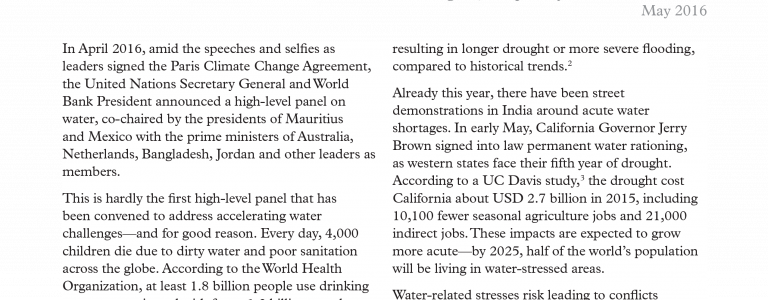Building Transboundary Water Security
This article highlights a new generation of transboundary agreements that aim to integrate wider freshwater benefits, notably ecosystem functions. It also points to the need for holistic approaches to freshwater management moving forward, as countries turn towards implementation of the Sustainable Development Goals.
Climate change is accelerating the world's freshwater challenges, which today leave over a billion people without access to clean water supplies, and many more lacking adequate sanitation.
As these stresses intensify, they risk leading to conflicts between countries. The response therefore needs to focus on shared international water basins. This article discusses a new generation of transboundary agreements that aim to integrate wider freshwater benefits, notably ecosystem functions. It also points to the need for holistic approaches to freshwater management moving forward, as countries turn towards implementation of the Sustainable Development Goals.
You might also be interested in
Public Policy Assessment and Advancing Science-Based Freshwater Protection: Background paper
In January 2017, IISD and the University of Ottawa convened a small group of experts to discuss fresh water in Canada, particularly as it relates to the federal regulatory regime. This paper written by M.P. Trudeau served as the background document for this event.
Watershed Indicators: The challenge of consistency
In 2014–2015, with support from Environment Canada, the Canadian Sustainability Indicators Network (CSIN) explored the question of watershed indicator consistency and coherency across Canada and between Canada and the United States.
What to Expect at Plastics INC-5
Q and A with Tallash Kantai of Earth Negotiations Bulletin on INC-5.
The Chemical Analysis of Fresh Water (Third Edition)
This publication describes the protocols used in the IISD Experimental Lakes Area Analytical Service Laboratory for the measurement of chemical constituents in freshwater samples.
